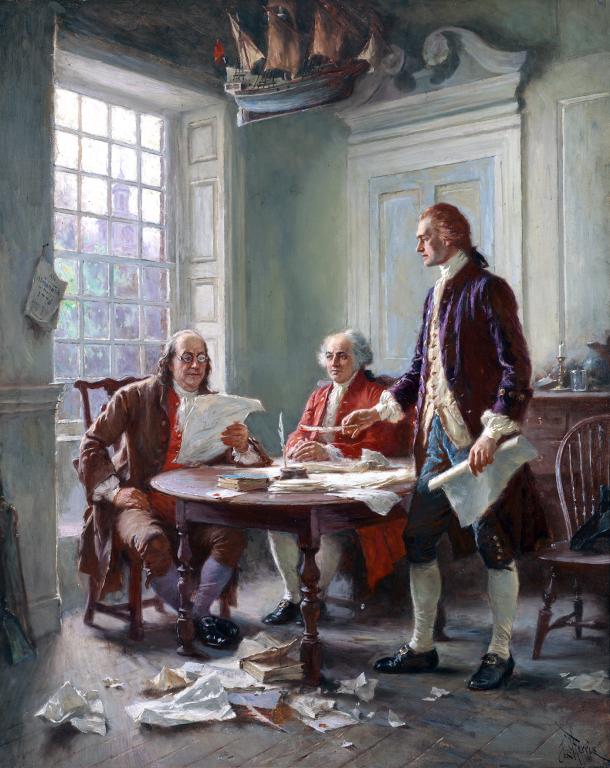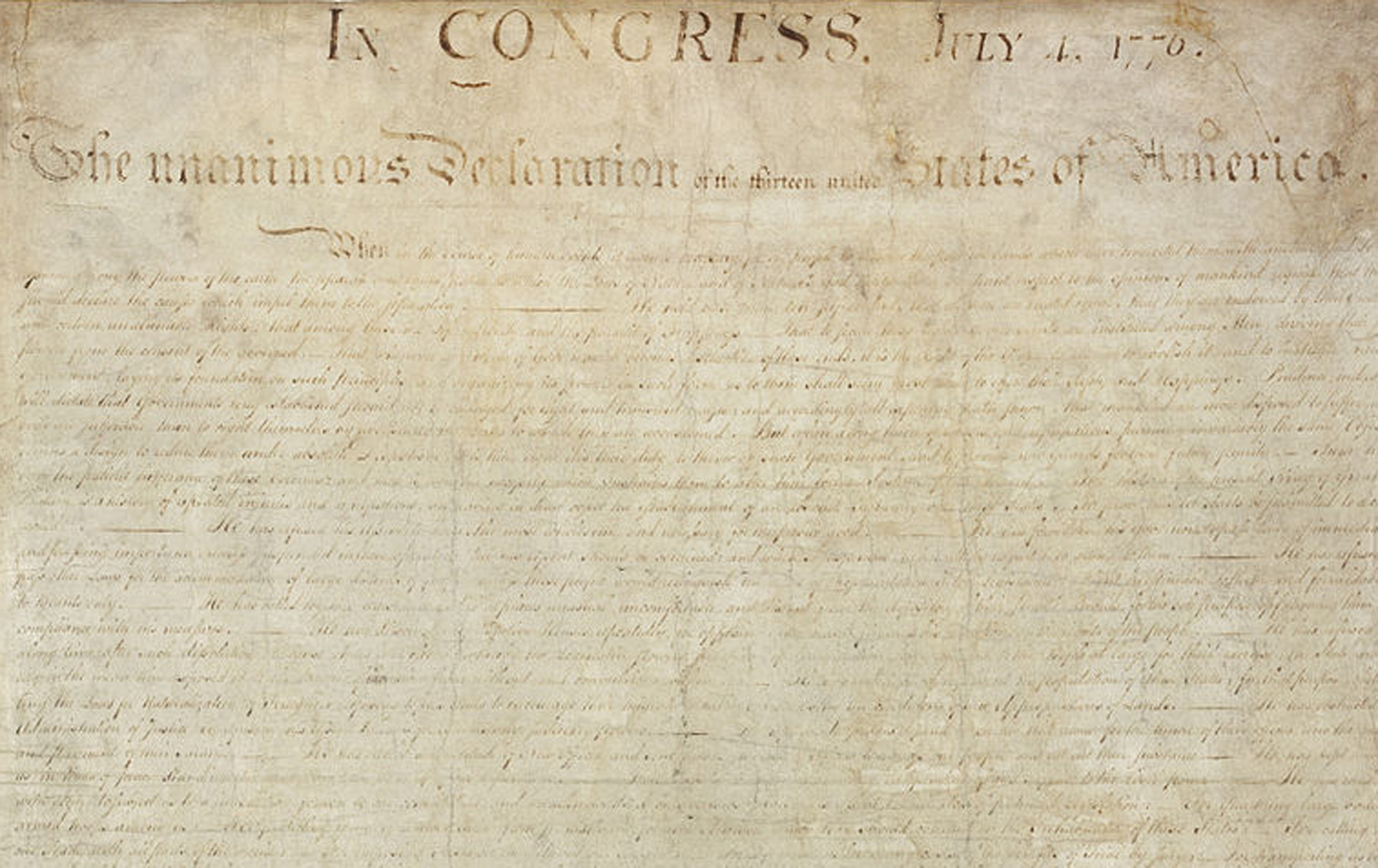
#Declaration of independence 1776 free
They say the king is “unfit to be the ruler of a free people.” The colonists accuse the king of sending a hired army to force them to obey unjust laws.
#Declaration of independence 1776 trial
They point out that the king has ignored or changed their colonial governments, as well as their rights to a trial by jury. In their complaints, the colonists make it clear that they are angry with the British king and government for taking away their rights as English citizens.

The longest part of the Declaration begins with "He has refused his Assent to Laws" and goes on to list the unfair actions of the British king and Parliament. Jefferson also addresses a counterclaim in this section, acknowledging that “Prudence, indeed, will dictate that Governments long established should not be changed for light and transient causes…” He counters by reminding his audience of the “long train of abuses and usurpations” that makes it “…their right, it is their duty, to throw off such Government, and to provide new Guards for their future security.” Perhaps the most famous line states, “We hold these truths to be self-evident, that all men are created equal, that they are endowed by their Creator with certain unalienable rights, that among these are Life, Liberty and the Pursuit of Happiness.” This part goes on to say that if the government tries to take these rights away, the people have the right to form a new government. This first part of the Declaration contains an assertion of individual rights. The final draft of the Declaration of Independence contains a preamble, a list of grievances, a formal declaration of independence, and signatures. Jefferson was most angered by the removal of one particular clause, a clause blaming the King for forcing the slave trade upon the American colonies. The Second Continental Congress removed whole sections. Between the Committee of Five and the Second Continental Congress, there were 86 edits to the document.


Jefferson finished his timeless defense of “life, liberty and the pursuit of happiness” in little more than two weeks, and like most writers, he was no stranger to the revision process. He goes on to claim that “ authority rests then on the harmonizing sentiments of the day.” (Jefferson to Henry Lee, May 8, 1825) “It was intended to be an expression of the American mind,” Jefferson explains. Looking back on the Declaration of Independence almost 50 years later, Thomas Jefferson explained that the document’s purpose was never meant to be thoroughly original its purpose wasn’t to articulate anything that hadn’t be said before, but to make the case for the American colonies in plain terms and persuade the world to see common sense.


 0 kommentar(er)
0 kommentar(er)
